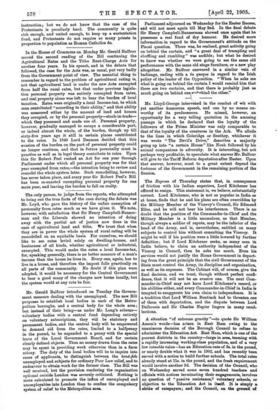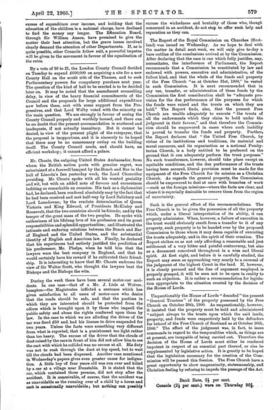A situation "of extreme gravity "—to quote Sir William Anson's
words—has arisen in East Ham owing to the unanimous decision of the Borough Council to refuse to administer the Education Act. East Ham, which is one of the poorest districts in the country—large in axes, teeming with a rapidly increasing working-class population, and of a very low rateable value—has an Education-rate of 3s. in the pound, or nearly double what it was in 1902, and has recently been served with a notice to build further schools. The total rates already stand at Ils, in the pound, and the fresh requirement would involve another 9d. The decision of the Council, who on Wednesday served some seven hundred teachers and officials with notices terminating their engagements, involves no question of "passive resistance,1 voluntary schools, or objection to the Education Act in itself. It is simply a strike of ratepayers; and the Council, on the ground of
excess of expenditure over income, and holding that the education of the children is a national charge, have declined to find the money any longer. The Education Board, through Sir William Anson, have promised to give the matter their best attention, but the grave issues involved clearly demand the attention of other Departments. If, as is quite possible, other Councils follow suit, a powerful impetus will be given to the movement in favour of the equalisation of the rates.



































 Previous page
Previous page